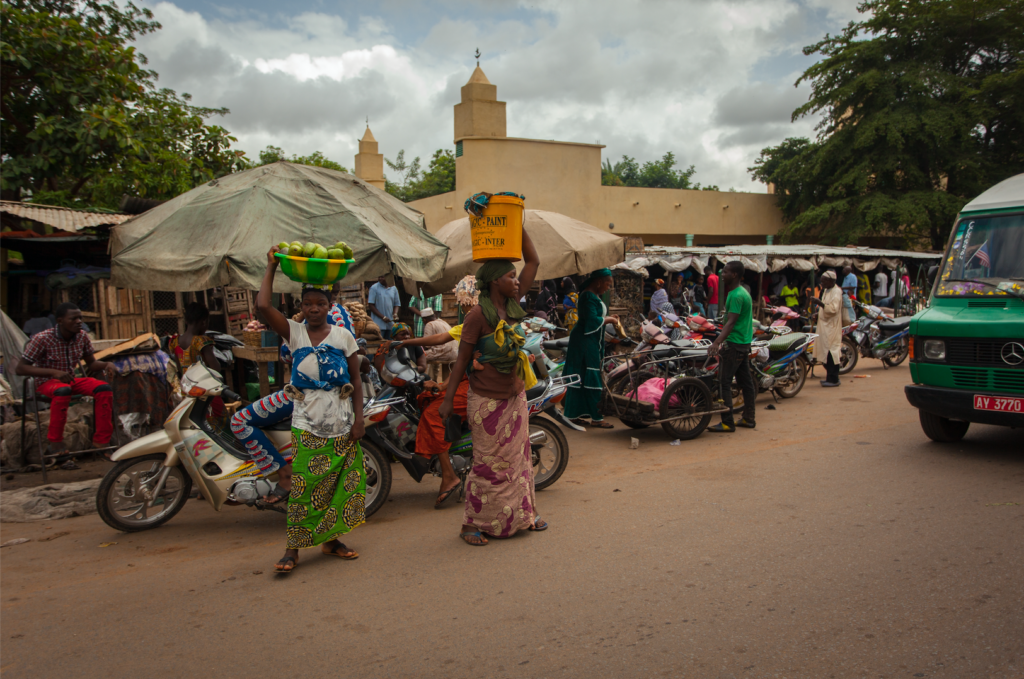Will an MVP solution for paying motorbike taxes be usable by payment agents at the City Hall?
Local authority: District of Bamako
Country: Mali
The District of Bamako has identified a need to tackle how tax collection is handled by the local authority, with older methods being labour intensive, opaque and often underleveraged. The District has recently launched multiple digital tax collection projects and wants to continue to improve both citizen experiences of paying tax and the tax revenue base of the local authority.
The Local Action Plan is focused on digitising the sale and distribution of vehicle tax stickers for the approximate 500,000 motorbike riders in the city. These stickers show that drivers have paid their tax for the year and are normally sold between the months of January and March. The current system of selling stickers is strained, as the different points of sale are not able to deal with the level of demand from riders. This results in extremely long queues that often incentivise riders to buy forged copies of stickers.
The focus of experimentation was testing an MVP version of the proposed payment application, which could be improved by adding additional functionality and adapted later on. The local authority wanted to test the usability of the application and willingness of City Hall agents and citizens to use the solution, by testing the sign up, payment, and printing of duplicate stickers alongside the existing system.
ASSUMPTION: The technological solution is simple enough and adapted to the capacities of the tax collection agents and responsible actors across the Local Authority
How the Local Action Group tested it
• A technology partner designed a basic version of the solution, replicating many of the features of the existing Excel file that tax agents already use
• Training was conducted for the municipality’s agents, including eight cashiers and two supervisors
• The sale of motorbike stickers was delayed because of border closures in Mali that meant that the supplier of the stickers could not receive the materials needed to produce them. This meant that testing could not be done with citizens and the regular sale period started about three months late
• During this delay, the solution was tested with the tax collection department of the municipality, to understand how the tax was managed internally so that an internal dashboard could be created. Additional functionality was then added for the platform to generate reports for the data collection agents.
What they learned
Tax collection agents were sceptical about the solution, so it is important to work with them throughout the design process. City Hall staff were quite sceptical about the solution because they felt that it was an audit and that it would disempower them in the long run. Engaging with these stakeholders consistently enabled the team to build trust between the platform and users.
The digital solution needs to work with the existing human resources and mechanisms. Previously, the system was accessible for counter agents, the counter administrator and overall controller, who normally have different levels of access. It was important for integration purposes that the digital solution replicate this by giving each agent a unique access number, and giving different levels of access for the purposes of data security.
The solution needs to be designed to reduce intermediaries and fraud in the old system. The local authority wants to remove the role of intermediaries, who buy stickers and resell them to riders for a higher price. The digital solution designed a “flags” system which would raise when an individual has purchased a lot of stickers, indicating they might be an intermediary.

Local group meeting
Was the assumption validated?
Yes the team learnt that:
• The digital solution is simple and adapted to the capacity of tax collection agents
• It is important that these agents are involved in the design and adaptation of the solution
What next?
The local group will need to test the roll-out of the solution with citizens through the tax collection period. Specifically, they would like to install the solution at two counters of the District Town Hall for real-life testing, with both the old and new system running at the same time.

Motorcycles parked by the market in Bamako


